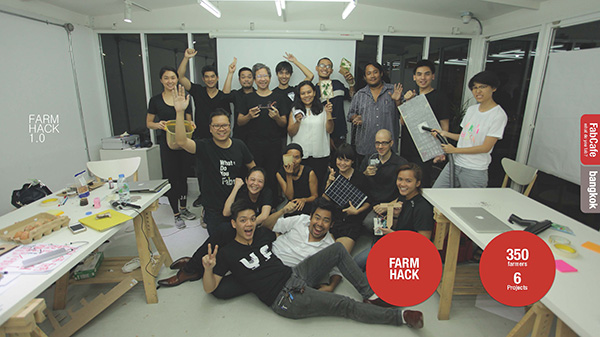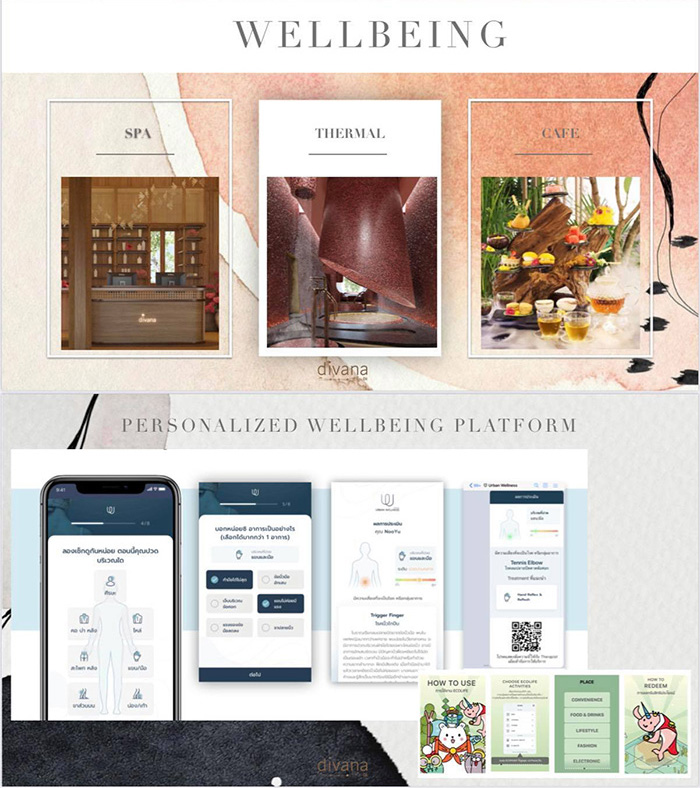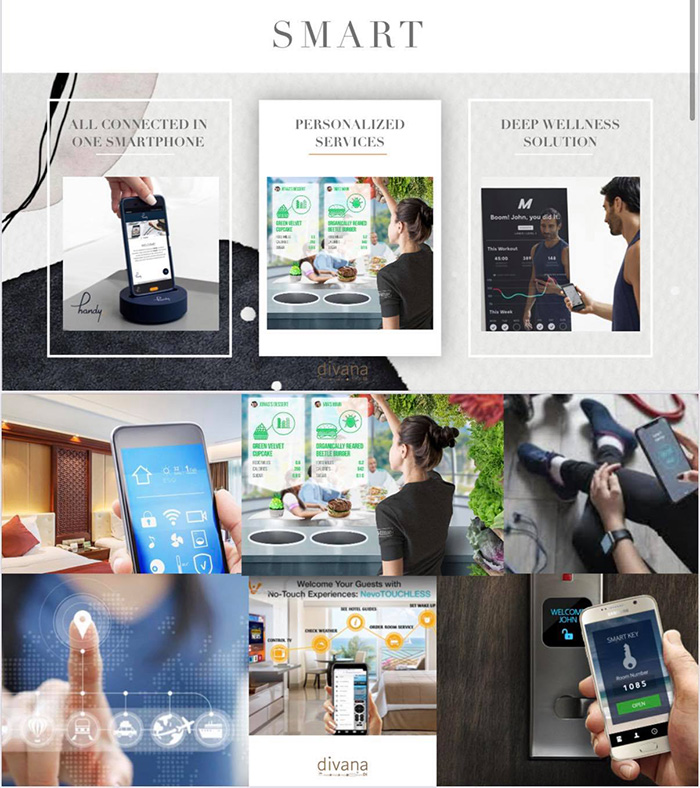Event report
July 28, 2021
David Willoughby
Freelance Writer
In this new event series, we invite each FabCafe to introduce the character of their local branch, show the projects they’re working on, and tell us how they’re responding to the unique challenges faced by their city or region.
Vol.1 saw us link up with Kalaya Kovidvisith, Co-founder of FabCafe Bangkok. In a lively online discussion, Kalaya explained how FabCafe collaborates with the Government of Thailand and local municipalities on sustainability projects. She was then joined by partners Divana Wellness to explain how FabCafe is developing new uses for silk, a renowned Thai product with huge untapped potential. But first, let’s hear how it all began.
Kalaya began by explaining FabCafe Bangkok’s origins in a house in the city’s Ari neighbourhood. The original space was based on a radical open model, essentially a walk-in community center hosting not just hackathons but also events like farmers’ markets that attracted a broader section of local residents.

The open-house style proved popular with the local community, but an increase in rent costs in 2019 forced FabCafe to look for an alternative site. They found a space in the Thailand Creative & Design Center (TCDC), a government building near Bangkok’s financial heart. The prestigious new location has boosted FabCafe’s links to industry, as Kalaya explains:
The new space is very formal and our customers have changed from B2C to B2B, from individual or family orientated to corporate entities. We have Future Fridays, which are like Fab meetups but presented by companies in order to encourage creators to work with them. We receive funding from government in order to help new businesses or old businesses to develop innovations.
Balancing the needs of community and industry is an issue that’s familiar to many FabCafes worldwide. A strong community base is attractive to businesses which hope to tap local creator networks. At the same time, government backing provides another level of access to industry partners. Learning from these different experiences, Kalaya hopes that FabCafe’s next location in Bangkok can combine the best of both worlds.

Kalaya then explains how the new space led to an increase in sustainability-related projects. The first was Plastic Hack, a collaboration with Precious Plastics and Material ConneXion aimed at transforming plastic waste into a raw material for designer-creators. One high-profile output has been Waste Surfer, which upcycles plastic waste into dazzling surfskate boards (see our case study here). There was also Air Hack, a technology-driven response to Bangkok’s pollution problems.




Next, we hear about a partnership with Thailand’s Energy Regulatory Commission (ERC). Like other branches of the government, the ERC is interested in forging links with creative and technology partners. In Thailand, such links are difficult to establish outside the university sector. Kalaya explains that Thailand tends to import technological solutions, with few opportunities to research and develop new ideas locally. FabCafe was able to lend its R&D expertise to launch several projects that could not have happened otherwise:
In the first year, we worked on Solar Vengers, which tries to harvest solar power and turn it into energy by making products. So, how can we collect energy from our daily lifestyles, such as solar-cell cafe machines, public parks with Photovoltaic floors, or even motorbike helmets that can generate electricity during traffic jams.
From among four prototypes, the “Foresee” helmet concept was developed and tested with support from food delivery companies like Lineman and Food Panda. The smart helmet was demonstrated at Bangkok Design Week 2020 – there’s more about that and other featured projects here.



This year, the ERC decided to focus on waste-to-energy solutions. FabCafe has been working with a robotics company to develop Bun-Bun, a robot cat that helps residents of Khon Kaen in north-eastern Thailand sort their trash and then delivers it to a nearby waste-to-energy power plant.
Kalaya’s team surveyed the entire waste-collection ecosystem in Khon Kaen to map interaction between the different participants – municipal authorities, communities, and homeless street collectors – before developing two robots of different sizes for indoor and outdoor use. She shows us how the project was met by some unique local challenges:
This is how we go about testing it. The robot has to walk on the street, because our pavements are not walkable. It’s very dangerous, but we will try it.


Local residents can summon Bun-Bun using the LINE app, and there’s even a plan to create robot maintenance jobs for the homeless. It’s all part of Khon Kaen’s drive to become a smart city. It had previously experimented with smart bins, but community usage was low. It’s hoped that the more creative approach taken by FabCafe will engage local residents and drive up participation in the waste-to-energy scheme.
Thailand’s potential as a test site for sustainability projects became obvious during Kalaya’s talk. Thais are tech-savvy and highly connected, but public infrastructure is often lacking and there’s a need for practical solutions to bridge the gap. Kalaya showed us how FabCafe Bangkok can map local realities and find local partners, as well as provide the product development expertise that’s hard to find in Thailand. As we’ll see, this doesn’t apply only to sustainability projects.

FabCafe Bangkok has also been hacking solutions for COVID-19. See our article here: https://fabcafe.com/th/magazine/fighting-covid-19-with-collaboration-fabcafe-bangkok-projects/

FABCAFE FIGHT CLUB saw participants turn themselves into video-game characters using 3D scanning. They can then fight against other players using their own 3D avatars!
Kalaya then talked us through Isan Silk Hack Jam, a major project now underway in Khon Kaen, also with the support of the TCDC. Silk is an important local product and the government is trying to explore possible new applications. That means thinking beyond the obvious, as Kalaya explains:
We shouldn’t limit ourselves to only fashion or textiles, since silk has a higher value in the healthcare business, or cosmetics. That’s why we would like to find partners to work in this area, and Divana Wellness is one.
She introduces us to Divana Wellness, a Thai company that wants to tap young creators for ideas on turning silk into new cosmetic products. FabCafe is now organizing hackathons where students develop new ideas based on silk, and Divana Wellness reciprocates by giving students valuable advice on tailoring their ideas to fit market demand and business realities.

Kalaya invited Pattanapong Ranurak and Tanet Jirasavekdilok from Divana Wellness to talk about an ongoing project.
Isan Silk Hack Jam received funding from the US Embassy in Thailand, and spin-off projects so far have included new chemical applications for silk, an IoT system to monitor silkworms, and a platform to connect silk farmers with local creators. Divana were full of praise for the technology ideas coming out of FabCafe and are already planning future collaborations, including a smart wellness destination in Thailand for the return of tourism post-pandemic.
The silk project gave us a real insight into Kalaya’s work as a social connector and catalyst. Not only did she secure the funding from the US Embassy, she approached biotech companies in Hong Kong, and engaged universities in Thailand to start a series of rolling hackathons. The initial funding period ends this year, so Kalaya hopes to bring on more companies like Divana Wellness as commercial partners.
In addition to silk, Kalaya mentions herbs as a possible area for collaboration. Only 10% of herb species in Thailand are currently harvested for use. Anyone interested in collaborating with FabCafe Bangkok can contact Kalaya directly at kalaya@fabcafe.com.


That concludes our Bangkok edition of Around the FabCafe World in 180 Days. The full video is now online for anyone who missed the event. Kalaya has now passed the baton from Bangkok to David Tena Vicente in FabCafe Barcelona!
-
David Willoughby
Freelance Writer
David thinks and writes about sustainability, technology and culture, and has reported on many of our hackathons, talks and other events. He also works with Japanese companies to help tell their stories to the world.
David thinks and writes about sustainability, technology and culture, and has reported on many of our hackathons, talks and other events. He also works with Japanese companies to help tell their stories to the world.






